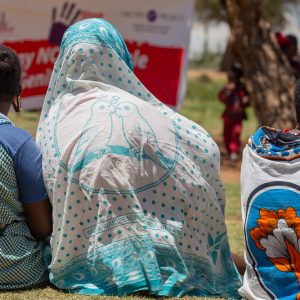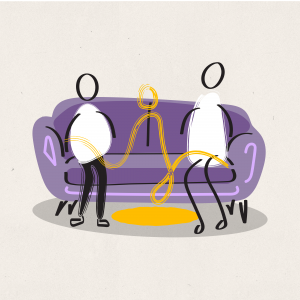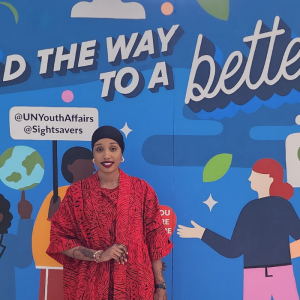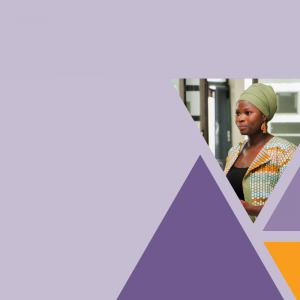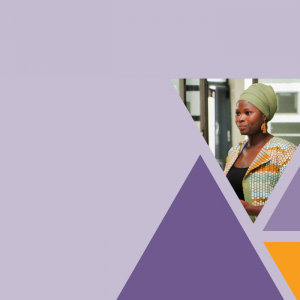KUALA LUMPUR/ LONDON: Female genital mutilation/cutting (FGM/C) in Asia is set to be addressed by the development of a new Asia Network to End FGM/C, across countries such as Brunei, India, Indonesia, Pakistan, Philippines, Malaysia, Maldives, Singapore and Thailand.
Malaysia-based regional feminist NGO, the Asian Pacific Resource and Research Centre for Women (ARROW), and British charity, Orchid Project have joined forces to support the development of the network, which they announced today at Women Deliver in Vancouver, Canada.
FGM/C is practised in over 45 countries globally, but the global focus has not responded strongly enough to the situation in the Asia region. For example, in Indonesia 49% of girls have undergone FGM/C. UNFPA estimate that by 2030, a further 15 million girls in Indonesia will be cut if efforts to end the practice are not accelerated.
“FGM/C has for long been presented as a traditional practice with harmful consequences for girls and women primarily taking place in Africa,” said Sivananthi Thanethiran, ED of Malaysia-based ARROW, a regional NGO advocating for sexual and reproductive health and rights (SRHR) of women and young people.
“What is lesser known is that there are many girls and women in Asia who are affected by the same practice. Because of the overall lack of advocacy in the region and pressure from the international community to end the practice in the region, governments continue to shy from taking measures to end FGM/C, which is in direct contradiction of a number of human rights commitments.”
Once established, the network will actively lobby governments in the Asia Pacific to end the practice to achieve the Sustainable Development Goal (SDG) 5 on gender equality and empowering all women and girls, and specifically SDG target 5.3 which relates to ending FGM/C. According to UNICEF (2018), 3.9 million girls are at risk of FGM/C annually, and at least 200 million girls and women have been cut in 30 countries. However, this figure does not include many countries in Asia Pacific where FGM/C is known to take place, so the true scale of the problem is unknown because of these gaps in data.
The announcement of the Asia Network to End FGM/C follows the establishment of vibrant networks to end FGM/C in Europe, the US and most recently in Canada – where Women Deliver is taking place.
“The first step in this process is to invite organisations across the region to help shape the Asia Network to End FGM/C,” said Ebony Riddell Bamber, Head of Advocacy & Policy at Orchid Project. “We will build a vibrant network in partnership with international organizations active on FGM/C in Asia, including Sahiyo and Equality Now, as well as grassroots organizations across the continent.”
“Our goal is to create a platform to jointly advocate for change, and identify how best to support and amplify the great work underway at the grassroots to end FGM/C,” Riddell Bamber added. If we don’t act now, many more girls across Asia will be subject to this harmful practice, and progress in ending FGM/C will be severely compromised.” she added.
Community and media reports indicate that FGM/C is prevalent in many Asian and Southeast Asian countries including Indonesia, Malaysia, Singapore, Brunei, Thailand, Philippines, Maldives, India and Pakistan.
The Asia Network to End FGM/C will establish a platform of NGOs, activists, and researchers across these countries to build stronger relationships and collaboration between organisations working across Asia. The platform will gather data and evidence on prevalence, take survivor needs and viewpoints into account, engage with religious scholars who can influence communities positively, and urge governments to report on the SDG indicator (5.3.2) related to FGM/C.
FGM/C has several immediate and long term health complications on women including infections, painful menstruation, urinary and vaginal problems, complications during childbirth and even death. “It is also important to frame FGM/C as a bodily rights and bodily integrity issue,” added Ms Thanenthiran.
Often, proponents of FGM/C justify the practice on the basis of religion, or some unproven health benefit or claim that it doesn’t harm women and girls. But religious scholars from different countries are divided on this, and some Muslim countries have banned FGM/C through fatwas and the law.
Support for the initial stage of development of the Asia Network to End FGM/C is being provided by Wallace Global Fund.
“No region of the world is immune from female genital mutilation/cutting, and advocates are increasingly speaking out against the practice throughout Asia,” said Susan Gibbs, Program Director for Women’s Rights and Empowerment at the Wallace Global Fund. “The practice remains poorly understood and largely hidden in the shadows. Wallace Global is convinced that the new Asia Network will play a powerful role in drawing attention to the issue and helping galvanize a regional response.”
Activists, researchers and organisations interested in being involved in shaping the network can contact online@arrow.org.my or ebony@orchidproject.org
ENDS
About ARROW:
The Asian-Pacific Resource and Research Centre for Women is a regional non-profit women’s organisation based in Kuala Lumpur, Malaysia. We have consultative status with the Economic and Social Council (UN ECOSOC) of the United Nations. ARROW strives to enable women to be equal citizens in all aspects of their life by ensuring their sexual and reproductive health and rights (SRHR) are achieved.
About Orchid Project:
Orchid Project is a UK-based NGO that is catalysing the global movement to end female genital cutting (FGC). FGC is a human rights violation that harms the lives of girls, women and their communities. Orchid Project partners with pioneering grassroots organisations around the world, and shares knowledge and best practice to accelerate change. Orchid Project also advocates among governments and global leaders to ensure work to end FGC is prioritised. The NGO has partnered and collaborated with organisations and activists from across Asia since 2012.
Photo by Sadie Teper on Unsplash.

